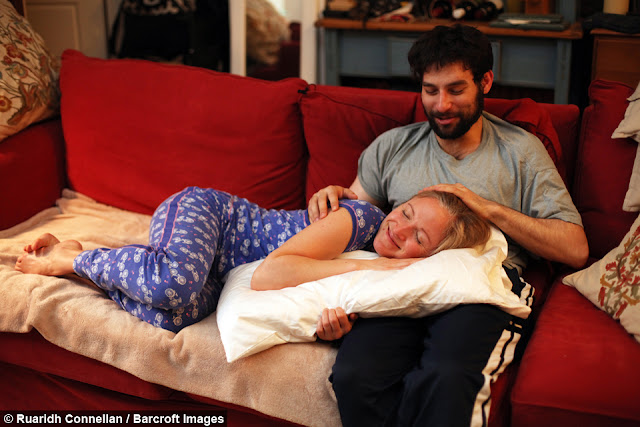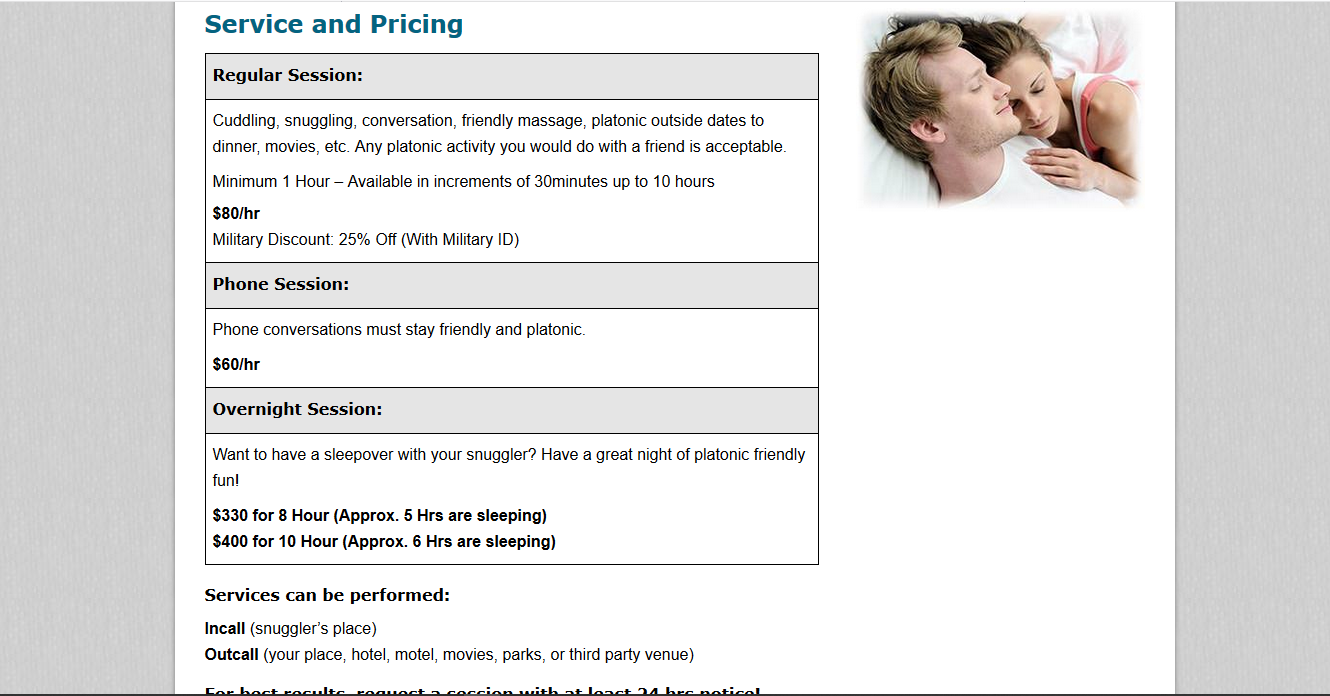The New Business of Selling Hugs and Cuddling; How did we reach here?
Recently, I have come across a testimony or short documentary about a woman who pays about 80 dollars per hour to be cuddled by strangers. Yes, Saskia Fredericks, a 41 year old lady currently doing actress lessons in New York says that her husband doesn’t have enough time with her due to his demanding job (he is a police man). To deal with the consequential loneliness, she hires professionals strangers to offer her cuddling services. And she pays about 80 dollars per hour of cuddling.
Get her full story plus the video here
The above was a little bit new to me and so I took interest in learning more about this. What I later discovered is that the idea of paying for hugs and cuddling has been in place for some good time and, a good number of companies have made it a business. One of these companies is called Cuddlist!
According to Cuddlist founder and CEO, Adam Lippin, ‘we’re social beings, and this connection with others is part of our emotional, physical and spiritual DNA.’ No one can refute this. At Miklah, we shared some theological dimension to this social nature of human; it was or is God’s plan and design that we live in association and not isolation.
While we, as social animals, need the touch and true intimacy from others, Lippin observes that actually ‘most of us don’t get enough touch in our lives. We’re touch-deprived, and most of us don’t even know it consciously. All we know is that there’s loneliness and stress and a deep sense of missing out.’ Again, he is right; a study on 20,000 Americans reported scaring scales of loneliness, especially among young people.
And this (being lonely) is dangerous. Researches have revealed that we need touch and association with others to get rid of stress and all associated issues of depression, heart diseases, and poor productivity plus low life expectancy. At his website, Cuddlist founder Lippin explains the benefits of touching and feeling human-human (to be specific, body to body closeness) in these words:
Touch plays an important role in building these connections, increasing scientific evidence clearly shows a connection that lack of touch can lead to depression, anxiety and a myriad of heath issues, and an inability to connect with others. More about the benefits of cuddling can be found at another snugglebuddies, another hug and cuddling selling company!
Back to Cuddlist, the company was started with the vision to provide for what was lacking among us; hugs and cuddling. And surely, with about 200 requests each week, and clients paying about 80 dollars per hour of the exercise, I wanna say: this is a billion dollar company!
Another company in the business is called the snuggle buddies. This company offers hugs, snuggling, cuddling, platonic calls and outings, and so much more. The fact is we are in a shattered society, full of shattered relationships and social activities. And the same capitalist businesses that have shattered our relationships aren’t ashamed to exploit our vulnerability to make more money. See the pricing list for this company:
By the way, have you ever visited our amazon bookstore? Do it here now
Where do you get hugs and cuddling from if you are poor?
As you can see, the dollars are enough. All I know is that these people later get addicted to the service and can’t live without it. And paying 80 dollars per hour or 400 dollars while sleeping (for about 10 hours) is only possible with the rich! So, where shall those without money but with the same issues as the rich find hugs and cuddling? Their problem, right?
SEE THIS TOO: What hasn’t been killed by money?
Well, first, allow me thank these entrepreneurs for being innovative and keenly observing our need for therapeutic and intimacy touch. These services are indeed relevant and welcome. But then, isn’t the cost too much? Can an average earner with depression or fear of being lonely afford 80 dollars for one hour cuddling or hugging? And who do we blame? Seriously, understanding the cause of all of this is our first step to addressing it.
The above entrepreneurs don’t mind about the cause; in their hearts, i suppose, they are praying that more and more people get heart-broken, be deprived of touch and affectionate from their friends and neighbors, and thus be enlisted onto their clients’ list. Of course, this may not be their prayer; it is just their kind of businesses demand this kind of prayer to survive ( I am kidding).
What is the cause of loneliness?
Caroline Beaton at Psychology today suggests two reasons why we are lonelier now than we were before; 1. associating ourselves with lonely people and thus contagiously getting the ‘sickness’ from them; 2. the invention and consequent invasion of our lives by internet and computer technology.
And you know what? I don’t agree with her entirely! Surely, her reasons have water. Internet and our association with those who are lonely are clear superficial causes of our loneliness but there is something more; the world economics and way of doing things (call it the modern day capitalism).
SEE THIS: The illusion of scarcity; there is no such thing as scarce resources
Take an example of the woman we talked of at the beginning; why is her husband not there? Listen to her words: ““My husband is a lieutenant in the police department so he is on patrol 24/7 and we don’t live together full time because I am here in NYC.” (source: B-TV). It is our 21st century’s way of work, money, economics, business, and entrepreneurship that precipitates all the above. I don’t have proper words to explain the above; let me borrow Charles Eisenstein’s words:
When money mediates all our relationships, we too lose our uniqueness to become a standard consumer of standard goods and services, and a standard functionary performing other services. No personal economic relationships are important because we can always “pay someone else to do it.” No wonder, strive as we might, we find it so hard to create community. No wonder we feel so insecure, so replaceable. It is all because of the conversion, driven, as we shall see, by interest, of the unique and sacred into the monetized and generic (Sacred Economics, page 61).
Money has become our life and death. For anyone among us to live, he or she must hunt for money; namely, leave his family, concentrate on work and lose sanity at the expense of putting food on the table. Thus, the problems of depression, loneliness, stress, and touch deprivation that entrepreneurs are building on their empires are not NEW problems; no, the economic set-up around us creates and fosters them and gains from them. It’s a cycle of unnecessary needs that we shall never break from unless a fundamental change in the way money is made and used is effected!
SEE THIS: The economics of loans and interests; nobody is safe
For now, let us pay for hugs and cuddling!





